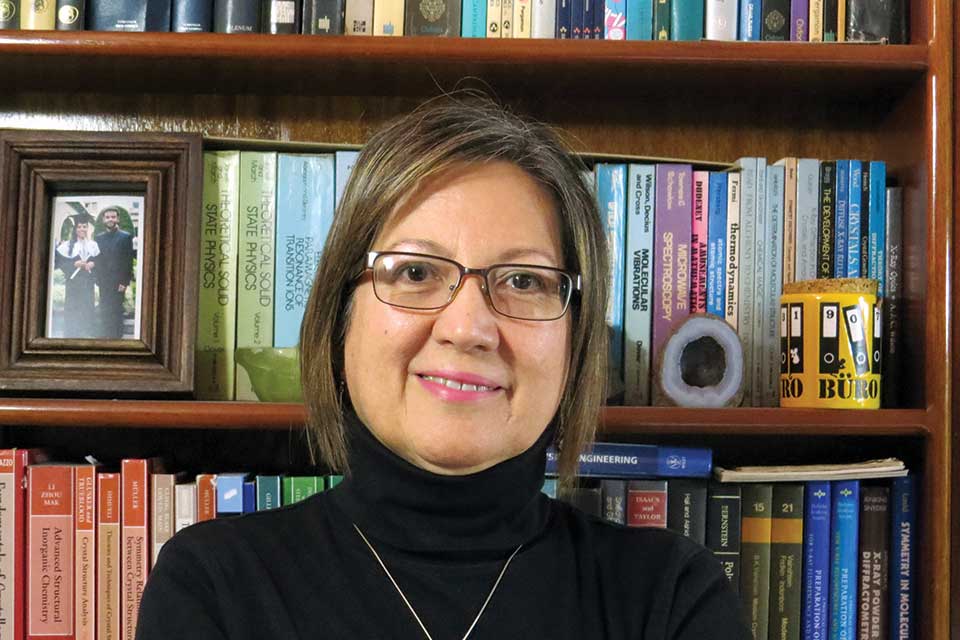Making Pharmaceutical Care Crystal Clear

By David Eisenberg
In her lab at the Universidad de los Andes in Mérida, Venezuela, chemistry professor Graciela Díaz de Delgado, GSAS PhD’88, P’24, studies the structure of drugs used to treat high blood pressure, Parkinson’s disease, and other illnesses.
Some of the drugs she examines are the patented property of large pharmaceutical companies. Others are the more affordable generic versions. Díaz de Delgado studies both because they’re not always created equal. A patient might be prescribed a generic version only to find it’s less effective than the patented drug.
“It’s not that the generic medicine is bad,” she says. “It’s just that the chemical composition and the purity of their formulations must be checked.”
So Díaz de Delgado, who has headed her Universidad de los Andes lab since 1989, carries out detailed X-ray diffraction analyses that break a drug down to its purest forms, revealing its chemical composition and crystalline structure.
From there, she compares the patented and generic versions to learn how the drugs work to better understand their differences and discover how much of one might be needed to equal the other. Her findings are shared with medical professionals to ensure patients receive the correct dosage instructions for the version of the drug they’re taking. This information is especially vital as drug prices soar and, in many countries, the use of generic drugs helps keep health care more affordable.
Over the course of her career, Díaz de Delgado has become a leader in the field of crystallography, the study of the arrangement of atoms in solid crystalline structures, a key activity at her lab. She’s held leadership roles in crystallography organizations, published more than 80 journal articles, and presented her work to numerous national and international bodies.
In August, she was elected vice president of the International Union of Crystallography, only the second Latin American to hold the position in the organization’s 76-year history.
“This is not just my achievement,” she says. “I see it as recognition of the work the Latin American community has been contributing from crystallography laboratories for many years.”
She’s thrilled her son, Daniel Delgado Díaz, GSAS PhD’24, pursued a doctorate (in musicology) at Brandeis. The education and support she received at the university — especially from her thesis adviser, Bruce Foxman, professor emeritus of chemistry — has been instrumental in her success, she says.
“I hope Brandeis continues to be a leading institution in the sciences,” Díaz de Delgado says. “You never know what important discoveries will come out of basic scientific research.”